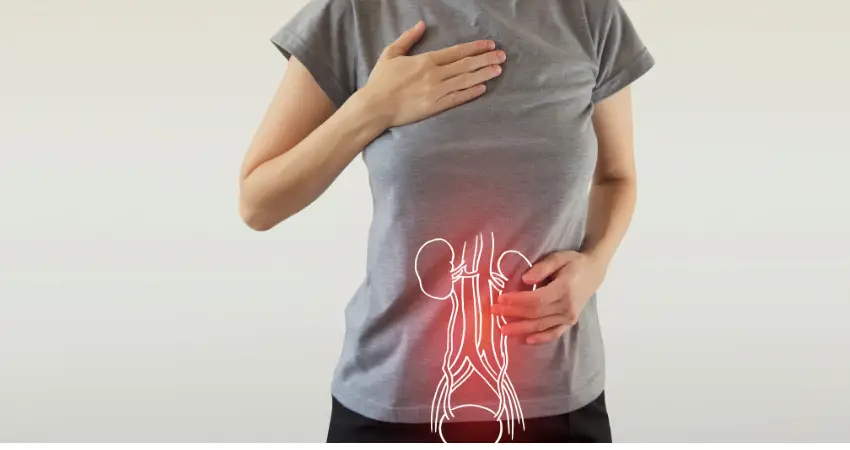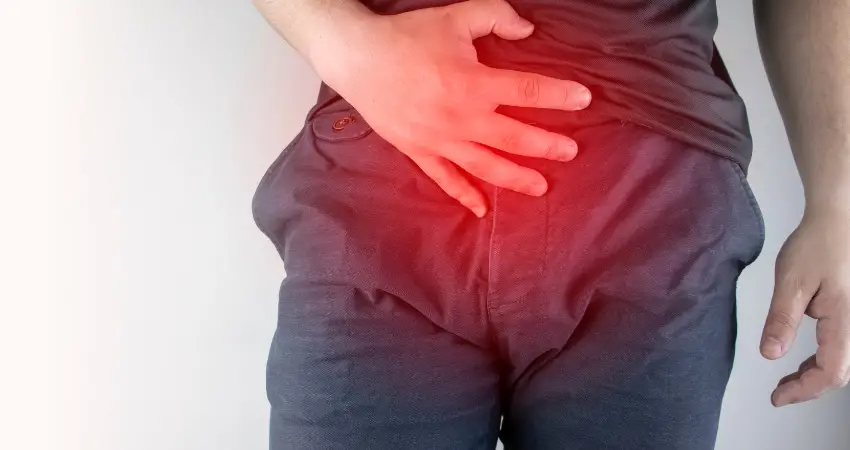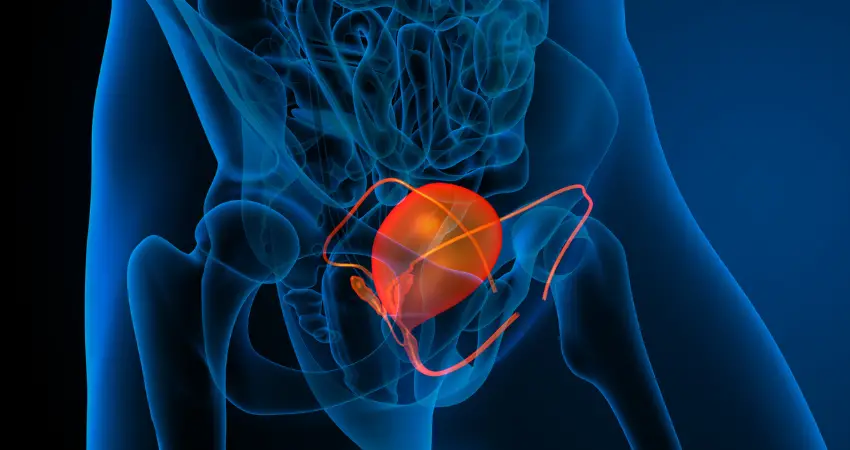Biohacking Your Bladder with Thiamine: A Natural Approach to Urinary Health
In the world of health and wellness, the term “biohacking” has gained significant attention for its ability to optimize and enhance various bodily functions through natural means.
One area of focus is urinary health, which plays a crucial role in overall well-being. Among the many approaches to improve bladder function, the role of thiamine, also known as vitamin B1, has recently garnered interest.
In this article, we will explore how thiamine can be a valuable tool for biohacking your bladder, promoting urinary health, and enhancing your quality of life.
Biohacking Your Bladder With Thiamine
Urinary health is often taken for granted until problems arise. However, optimizing bladder function can lead to a more comfortable and fulfilling life.
Biohacking, the practice of making conscious changes to your environment, lifestyle, and diet to improve bodily functions, offers a natural and holistic way to achieve this.
Understanding Urinary Health
The urinary system plays a crucial role in eliminating waste and excess fluids from the body. A disruption in bladder function can lead to issues such as frequent urination, urinary tract infections (UTIs), and even incontinence.
To biohack your bladder effectively, it’s essential to understand the factors that influence its health.
The Science Behind Thiamine
Thiamine, classified as a water-soluble vitamin, holds a prominent reputation primarily for its essential role in the conversion of ingested food into vital energy that fuels the body’s various functions.
Thiamine is a type of vitamin that helps turn the food we eat into energy for our body.
But recent studies suggest it might do more than that. It could also be good for our brain and heart health. Thiamine seems to have a role in how our nerves send signals and how our muscles work.
This could mean it has a part to play in keeping our bladder healthy too. Our bladder relies on signals and muscles to work properly, and thiamine might help with that.
So, while we often think of thiamine as an energy booster, it might have a hand in keeping our bladder in good shape as well.
Related Articles
Thiamine Deficiency Eye Symptoms

Thiamine Deficiency and Bladder Dysfunction
When your body lacks enough thiamine, it can lead to a variety of health troubles.
Interestingly, one area that could be affected is your bladder.
Recent studies have hinted at a potential connection between not having sufficient thiamine and experiencing problems with your urinary system.
This link suggests that ensuring you have an adequate thiamine intake might have a positive impact on the way your bladder functions.
By addressing this shortage of thiamine, you could potentially contribute to the better performance of your bladder, enhancing your overall well-being.
Biohacking Your Bladder: Thiamine’s Role
Incorporating thiamine-rich foods into your diet can be a simple yet effective way to biohack your bladder. Foods like whole grains, legumes, nuts, and lean meats are excellent sources of thiamine. By providing the necessary nutrients, thiamine supports nerve signals and muscle coordination in the bladder.
Dietary Sources of Thiamine
To ensure your body receives an adequate amount of thiamine, consider adding foods such as brown rice, lentils, sunflower seeds, and pork to your diet. These foods not only support urinary health but also contribute to your overall well-being.
Supplementing with Thiamine: Dosage and Considerations
For individuals who find it challenging to get sufficient thiamine from their regular diet, there’s an alternative – supplements.
These can be a helpful option to bridge the gap. However, it’s important to approach thiamine supplementation with caution.
Before you begin taking any thiamine supplements, it’s highly recommended to consult a healthcare professional.
Their expertise is vital in ensuring that you’re making informed decisions about your health. They can provide essential guidance on determining the right dosage of thiamine supplements for your specific needs.
Moreover, they can also offer insights into potential interactions that might occur between thiamine supplements and any medications or health conditions you might have.
Taking this step not only ensures that you’re getting the appropriate amount of thiamine but also safeguards your overall health and well-being.

Thiamine Co-Factors
Magnesium, potassium, zinc, and B-complex vitamins serve as essential co-factors that collaborate with thiamine in our body.
These co-factors are like supportive partners, aiding thiamine in carrying out its vital roles.
They contribute to processes such as energy production, nerve signaling, and muscle function. This team effort ensures the smooth functioning of various bodily functions, promoting overall well-being.
Lifestyle Modifications for Urinary Health
Biohacking your bladder extends beyond nutrition. Lifestyle changes, such as practicing pelvic floor exercises, managing stress, and staying hydrated, contribute to optimal bladder function. These modifications can improve muscle control, reduce inflammation, and enhance overall urinary health.
Exercising Your Bladder: Techniques and Benefits
Just like any other muscle, the bladder can benefit from exercise. Techniques like bladder training can help increase the bladder’s capacity and reduce the urge to urinate frequently. This practice is especially beneficial for those dealing with overactive bladder issues.
Hydration and Bladder Function
Proper hydration is essential for maintaining healthy bladder function. Drinking an adequate amount of water not only helps flush out toxins but also prevents irritation of the bladder lining. However, be mindful of excessive fluid intake before bedtime to avoid nighttime bathroom trips.
Stress Management and Bladder Health
Stress can take a toll on various bodily functions, including bladder health. Learning stress management techniques such as meditation, deep breathing, and yoga can positively impact bladder function and reduce the risk of urinary issues.
Thiamine and UTIs: A Potential Connection
Urinary Tract Infections (UTIs) are a common medical issue affecting millions of people worldwide. These infections can lead to discomfort, pain, and disruption of bladder function.
Recent studies have suggested a potential link between thiamine, also known as vitamin B1, and the prevention of UTIs.
Thiamine plays a vital role in supporting the immune system and maintaining overall health. This article delves into the potential connection between thiamine and UTIs, investigating how thiamine’s immune-supporting properties could contribute to preventing UTIs and promoting a healthy bladder environment.
The Role of Thiamine in the Immune System:
Thiamine is an essential nutrient that the body requires for various physiological functions. One of its key roles is supporting the immune system’s proper functioning.
Thiamine plays a crucial role in energy production within immune cells, enabling them to effectively combat infections. Additionally, thiamine contributes to the production of certain immune cell components, such as cytokines, which play a vital role in the immune response.
Thiamine Deficiency and Susceptibility to Infections
A deficiency in thiamine can impair the immune system’s ability to respond adequately to infections. Inadequate thiamine levels may lead to decreased immune cell activity and impaired production of immune mediators.
This deficiency might render individuals more susceptible to infections, including UTIs.
Thiamine and UTIs: While direct studies focusing solely on thiamine’s impact on UTIs are limited, the connection between thiamine and immune function suggests a potential role in preventing UTIs.
A robust immune system is essential for combating bacterial pathogens that cause UTIs.
By supporting immune cell activity and the production of immune signaling molecules, thiamine could indirectly contribute to reducing the risk of UTIs.
Maintaining a Healthy Bladder Environment
Beyond its immune-supporting role, thiamine could potentially aid in maintaining a healthy bladder environment.
A strong immune response can help prevent the colonization of harmful bacteria in the urinary tract. Thiamine’s involvement in energy production and cell maintenance may contribute to the bladder’s ability to fend off pathogens, reducing the likelihood of infection.
Consulting a Healthcare Professional
Before making any significant changes to your diet or lifestyle, it’s essential to consult a healthcare professional.
They can provide personalized advice based on your medical history, ensuring that your biohacking journey is both safe and effective.
Are there any potential side effects of thiamine supplementation?
Allergic Reactions: In some rare cases, individuals may experience allergic reactions such as itching, rash, hives, swelling, or difficulty breathing.
Thiamine deficiency can occur due to various factors that hinder its absorption, utilization, or intake. Some common reasons why people might become deficient in thiamine include:
- Poor Diet: A diet lacking in thiamine-rich foods, such as whole grains, lean meats, legumes, and nuts, can lead to deficiency. Diets heavily based on processed foods and refined carbohydrates may lack sufficient thiamine.
- Alcohol Abuse: Chronic alcohol consumption can interfere with thiamine absorption and utilization, leading to a condition known as Wernicke-Korsakoff syndrome. This is particularly common among heavy alcoholics.
- Malabsorption Issues: Certain medical conditions affecting the digestive system, like celiac disease, Crohn’s disease, and irritable bowel syndrome (IBS), can impair thiamine absorption.
- Gastrointestinal Surgery: Surgical procedures that alter the digestive tract, such as gastric bypass surgery, can reduce the body’s ability to absorb thiamine and other nutrients.
- Medical Conditions: Chronic illnesses like diabetes and HIV/AIDS can increase the risk of thiamine deficiency due to the increased metabolic demands and potential malabsorption.
- Pregnancy and Breastfeeding: Pregnant and breastfeeding women require higher amounts of thiamine, and deficiency can occur if their dietary intake does not meet these increased demands.
- Hyperthyroidism: Overactive thyroid glands can affect metabolism, potentially leading to a higher need for thiamine.
- Elderly Population: Older adults might have reduced appetite or difficulty absorbing nutrients, which can contribute to thiamine deficiency.
- Extreme Diets: Fad diets, crash diets, or restrictive eating patterns that limit food variety can result in inadequate thiamine intake.
- Chronic Diarrhea or Vomiting: Conditions that cause frequent diarrhea or vomiting can lead to thiamine loss and deficiency.
- Medication Interactions: Certain medications, like diuretics or medications that increase urine output, can result in thiamine excretion.
- Cultural Practices: In some cultures, food processing methods like milling grains and removing the outer layers can lead to thiamine loss, contributing to deficiency.
- Eating Disorders: Individuals with eating disorders might have poor diets and nutritional deficiencies, including thiamine deficiency.
Conclusion
Biohacking your bladder with thiamine offers a promising avenue for enhancing urinary health naturally. By understanding the role of thiamine, making dietary adjustments, and implementing lifestyle changes, you can take proactive steps towards optimizing bladder function.
Remember that individual responses may vary, and consulting a healthcare professional is essential for personalized guidance.
